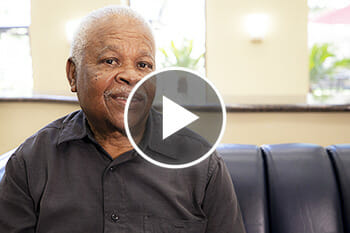There are about 3,000 train collisions every year, and these devastating accidents result in more than 1,000 deaths. In all, this comes out to about one crash every three hours, and the incredible mass and power behind a locomotive generally obliterates anything in its path. However, this size difference doesn’t protect people inside the locomotive, as any crash can derail it or cause a huge amount of upheaval inside the passenger cars. Unfortunately, these crashes will likely continue to increase in the future, as the Department of Transportation believes locomotives will be used more and more for cargo and passenger transport.
Who is liable when train collisions occur?
These cases are often highly complex and fraught with all kinds of bureaucracy. More than 95 percent of all crashes occur at railroad crossings, and there are multiple parties who often share responsibility for these stretches of track. The vehicle driver may also share responsibility for a crash if they chose not to operate their auto safely at the crossing. Some of the parties responsible for a crash may include:
The railroad company responsible for operating the locomotive
The company who employs the engineer and crew and maintains the locomotive shares a huge portion of accident liability. At every crossing, the operator must fulfill several duties to ensure safety in the area. These duties include
- Sounding the locomotive’s whistle as they approach the crossing
- Ensuring that operators follow their training
- Maintaining vigilance as the locomotive nears the crossing
- Operating the locomotive at safe speeds
- Making sure the locomotive is properly maintained
If these duties are not met at the time of an accident, the operating company will be partly liable for any injuries.
The company responsible for the locomotive’s design or construction
Even if the operator does everything they are supposed to, the locomotive may still fail if its brakes, lights, whistle, coupling system or communications are poorly designed or built. If any of these do not function like they are supposed to, the results can be disastrous.
The company responsible for maintaining the railroad track
Occasionally when train collisions occur, it has little to do with the engineer or a vehicle driver. Different companies own and maintain railroad tracks and crossings, including the land immediately around the track. These companies must properly install any gates or lighting, maintain the track well, and ensure that there are accessible sight lines as motorists approach the crossing. If these duties are not met, the crossing will be inherently unsafe. Just as a motorcycle accident lawyer would investigate road conditions after a crash, it’s essential to consider all factors that might contribute to train-related incidents.
The city or county the track is located in
Though it is rare, a city or municipality may be partly liable for injuries sustained in train collisions. This is usually relevant when the road intersecting the crossing is not well built or maintained. If you or someone you know has been affected, consulting with a train accident lawyer can provide guidance on your legal options.
The vehicle driver
Of course, the vehicle driver has a responsibility at crossings to keep their auto under control. If a driver attempts to pass through a crossing guard when the arms are down, the driver will be largely responsible if a wreck occurs. Consulting with a vehicle accident lawyer can provide clarity on liabilities in such scenarios. Also, if a driver is exceeding the speed limit or has not maintained their auto properly, this may also expose the driver to liability.
Attorney Terry Bryant
 Terry Bryant is Board Certified in personal injury trial law, which means his extensive knowledge of the law has been recognized by the Texas Board of Legal Specialization, setting him apart from many other injury attorneys. The 22 years he spent as a Municipal Judge, Spring Valley Village, TX also provides him keen insight into the Texas court system. That experience also helps shape his perspective on personal injury cases and how they might resolve. This unique insight benefits his clients. [ Attorney Bio ]
Terry Bryant is Board Certified in personal injury trial law, which means his extensive knowledge of the law has been recognized by the Texas Board of Legal Specialization, setting him apart from many other injury attorneys. The 22 years he spent as a Municipal Judge, Spring Valley Village, TX also provides him keen insight into the Texas court system. That experience also helps shape his perspective on personal injury cases and how they might resolve. This unique insight benefits his clients. [ Attorney Bio ]


 Terry Bryant is Board Certified in personal injury trial law, which means his extensive knowledge of the law has been recognized by the Texas Board of Legal Specialization, setting him apart from many other injury attorneys. The 22 years he spent as a Municipal Judge, Spring Valley Village, TX also provides him keen insight into the Texas court system. That experience also helps shape his perspective on personal injury cases and how they might resolve. This unique insight benefits his clients. [
Terry Bryant is Board Certified in personal injury trial law, which means his extensive knowledge of the law has been recognized by the Texas Board of Legal Specialization, setting him apart from many other injury attorneys. The 22 years he spent as a Municipal Judge, Spring Valley Village, TX also provides him keen insight into the Texas court system. That experience also helps shape his perspective on personal injury cases and how they might resolve. This unique insight benefits his clients. [ 


